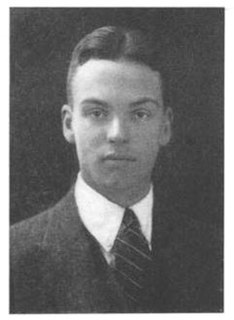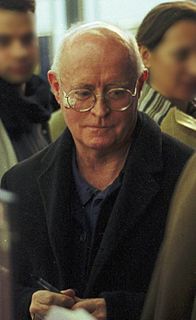A Quote by Franz Grillparzer
It is open to question whether the highly individualized characters we find in Shakespeare are perhaps not detrimental to the dramatic effect. The human being disappears to the same degree as the individual emerges.
Related Quotes
The real question today is not when human life begins, but, what is the value of human life? The abortionist who reassembles the arms and legs of a tiny baby to make sure all its parts have been torn from its mother's body can hardly doubt whether it is a human being. The real question for him and for all of us is whether that tiny human life has a God-given right to be protected by the law - the same right we have.
The American child is a highly intelligent human being - characteristically sensitive, humorous, open-minded, eager to learn, and has a strong sense of excitement, energy, and healthy curiosity about the world in which he lives. Lucky indeed is the grown-up who manages to carry these same characteristics into adult life. It usually makes for a happy and successful individual.
So far, we do not seem appalled at the prospect of exactly the same kind of education being applied to all the school children from the Atlantic to the Pacific, but there is an uneasiness in the air, a realization that the individual is growing less easy to find; an idea, perhaps, of what standardization might become when the units are not machines, but human beings.
My problem is, whether it's for emotion or for the talents that a character has to have in a role, I find it very difficult to not take on a challenge. I need to say, "Okay, enough, take the easy road." But the easy road for me is not - it might just come out coincidentally. I wouldn't ever choose a movie because it's easy. I might choose a movie because I feel like being funny, or I feel like being able to do something that is perhaps dramatic, but to a lesser degree. Because I like switching it up, basically, not because I would take the easier road.
At this point, an urgent question arises: [...] Is it our duty to seek to become a thorough and complete human being, one quite sufficient unto himself; or, on the contrary, to be only a part of a whole, the organ of an organism? Briefly, is the division of labor, at the same time that it is a law of nature, also a moral rule of human conduct; and, if it has this latter character, why and in what degree?







































